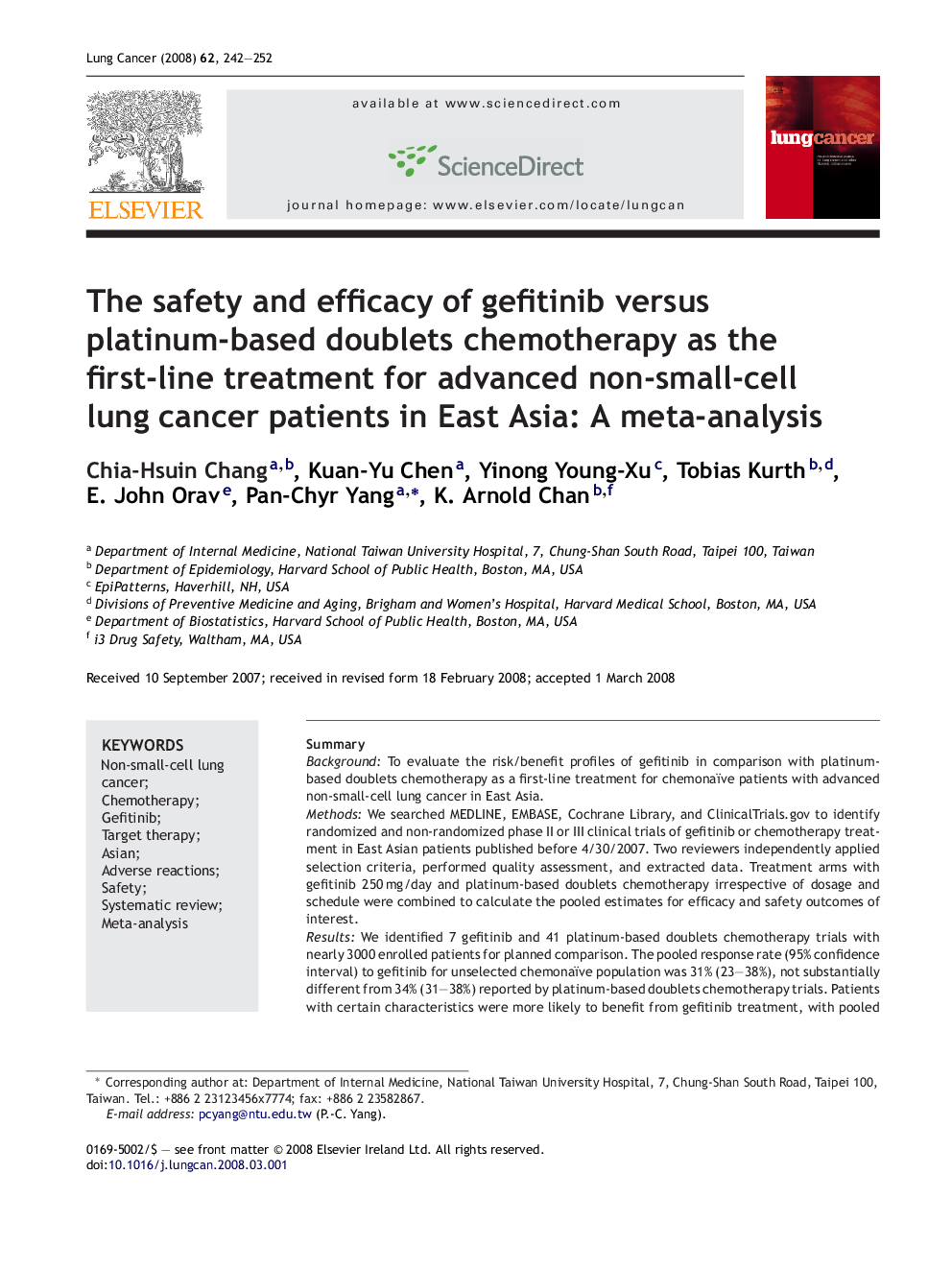| کد مقاله | کد نشریه | سال انتشار | مقاله انگلیسی | نسخه تمام متن |
|---|---|---|---|---|
| 2143436 | 1088347 | 2008 | 11 صفحه PDF | دانلود رایگان |

SummaryBackgroundTo evaluate the risk/benefit profiles of gefitinib in comparison with platinum-based doublets chemotherapy as a first-line treatment for chemonaïve patients with advanced non-small-cell lung cancer in East Asia.MethodsWe searched MEDLINE, EMBASE, Cochrane Library, and ClinicalTrials.gov to identify randomized and non-randomized phase II or III clinical trials of gefitinib or chemotherapy treatment in East Asian patients published before 4/30/2007. Two reviewers independently applied selection criteria, performed quality assessment, and extracted data. Treatment arms with gefitinib 250 mg/day and platinum-based doublets chemotherapy irrespective of dosage and schedule were combined to calculate the pooled estimates for efficacy and safety outcomes of interest.ResultsWe identified 7 gefitinib and 41 platinum-based doublets chemotherapy trials with nearly 3000 enrolled patients for planned comparison. The pooled response rate (95% confidence interval) to gefitinib for unselected chemonaïve population was 31% (23–38%), not substantially different from 34% (31–38%) reported by platinum-based doublets chemotherapy trials. Patients with certain characteristics were more likely to benefit from gefitinib treatment, with pooled response rates as high as 75% (60–90%) for patients with epidermal growth factor receptor (EGFR) exon 18–21 mutations; 56% (38–74%) for never smokers; 55% (41–69%) for female; and 43% (30–57%) for adenocarcinoma or bronchioalveolar carcinoma. Severe hematological adverse events related to gefitinib treatment were not observed in any of the included trials. However, the risks of severe liver and lung injury related to gefitinib treatment were both approximately 6%, significantly higher than 1% and 0.2% reported by platinum-based doublets chemotherapy trials.ConclusionOur data suggest that one third of chemonaïve NSCLC patients in East Asia would respond to oral gefitinib monotherapy while 6% would develop severe liver and lung injury. Although patients with EGFR gene mutations, female gender, non-smokers, or adenocarcinoma were more likely to respond to gefitinib, further study with valid comparison groups are needed to identify the optimal treatment strategy in these subpopulations.
Journal: Lung Cancer - Volume 62, Issue 2, November 2008, Pages 242–252